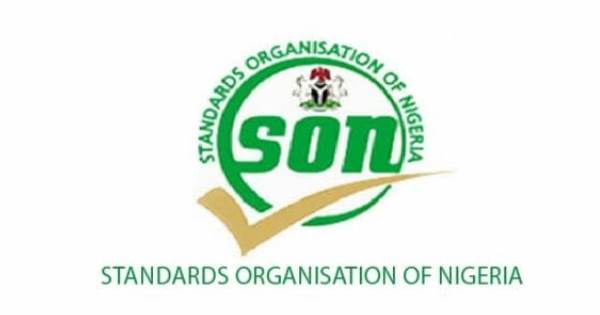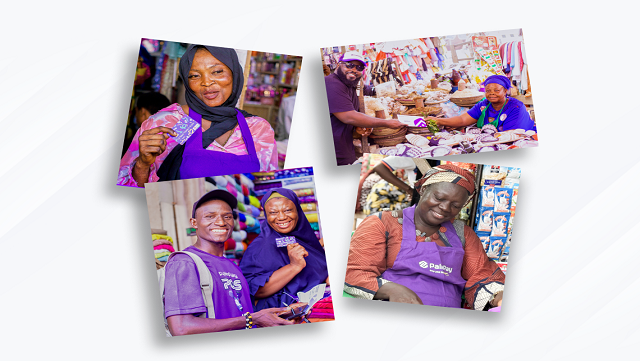General News
SEC, Others Harp on Global Acceptance of Nigeria’s Commodities

The Securities and Exchange Commission (SEC), among other stakeholders have demanded improved standard of locally produced commodities and take into cognizance internationally accepted standards.

Speaking at a commodities standards sensitisation workshop held in Lagos, the Executive Commissioner Operations SEC, Mr. Dayo Obisan called on the need to reduce the substandard commodities in the market and encourage global acceptance of commodities produced in Nigeria.
The SEC as part of the implementation of the 10-year capital market masterplan, constituted a technical committee in commodities trading ecosystem. The mandate of the committee was to identify challenges with the existing framework and develop a roadmap for a vibrant ecosystem.
However, Obisan said that it is globally recognized that the unique feature of the commodities exchange is the standardization of the commodities traded on the platform as each commodity traded on the exchange is graded by quality, size, weight and other criteria.
He said, however, that the determination of these grades and standards is dependent upon improved local standards, which will take into cognizance internationally accepted standards.
According to him, “in recognition of the statutory responsibility of standard setting in Nigeria lies with the Standards Organization of Nigeria.
“The Executive Management of the Commission on behalf of all stakeholders engaged with the management team of the Standards Organization of Nigeria, to ensure the expedited approval and publication of standards commodities.
“The establishment of relevant standards will significantly transform the Nigerian commodities trading ecosystem. Sequel to that engagement, the ecosystem roadmap implementation committee comprising key stakeholders has been working on the development of grading and standardization system.
The initial stage of the development process will concentrate on delivery of standards for agricultural commodities.
“In this regard, we are working with the SON to create awareness for existing agricultural commodities standard but more essentially to obtain feedback from you the stakeholders on the standards to be considered in this workshop and initiate a view of inadequate standards applicable.”
Obisan said the SEC remains a strong advocate for a thriving commodities trading ecosystem. We strongly believe this is a project of national importance, given that that commodities exchanges value chain has significant value and can transform our economy.
According to him: “As Nigerians thrive to achieve a sustainably diversified economy, given the current drive to guarantee food security, there is an urgent need for more complementary efforts from the government, regulators and critical stakeholders to ensure the approval and effective adoption of appropriate local standard benchmark against international practice to establish quality and reverse the unwarranted situation of perennial rejection of the Nigerian produced commodities.
“It is therefore my expectation for this workshop and other stakeholders’ engagement to serve as a rallying point for inclusive standards development process. As the ecosystem is driven towards standardization, the broader society will be impacted for greater prosperity”.
In his remarks, Mallam Farouk Salim, Director General of SON, said that the organisation is willing to collaborate with relevant stakeholders in ensuring that the development of standards follows the best international principles of standard development as this would lead to improved lives of Nigerians.
Represented by Dr. Omolara Okunlola, Head Food Group, Salim said the organization is ensuring it promotes confidence of Nigerians in Nigerian produce and ensuring that SON in line with the various Federal Government policies, develops standards in such areas.
“For the first time in history, we have the strategy already outlined under the Nigerian national standardization strategy. If you go through the strategy, you can see we have listed out standards to be developed, under agriculture, energy, transport, industry, a focus on SMEs, we also have for the health sector. The strategy is a living strategy, as policies from the government come up, we try to update the strategy “she stated.
Also speaking, Chairperson of the Commodities Trading Ecosystem Implementation Committee, Ms. Daisy Ekineh said with the strong global push for green economies and a net zero carbon emission, the era of fossil fuel in powering development is fast coming to an end hence, for an oil dependent economy like Nigeria, it is a race against time to effectively diversify the economy.
Ekineh said there is no doubt that efforts are on-going in this direction as evidenced by the various policies and programmes of government and the increasing contribution of the non-oil sectors to GDP which now exceeds 90% of GDP. Over 92per cent in Q2 2021.
She said, “The progress is commendable. Nonetheless, efforts need to be invigorated to speedily diversify the economy in all respect, for while the oil sector has shrunk in its contribution to GDP, it remains quite dominant in foreign exchange receipts and export trade. The economy is in other words, still mono product in some respect and significantly lacking in export diversification.
General News
IHS Nigeria, United Nations Global Compact Host High-Level Dialogue on Sustainability and Greener Business Practices in Nigeria

IHS Nigeria, in collaboration with the United Nations Global Compact Network Nigeria, hosted a high-level private sector dialogue themed “Collaborative Strategies for Greener Business Practices, Innovation and Sustainable Development”.

The event, held in Lagos, brought together key players from different sectors including finance, law, telecommunications, biodiversity, and corporate sustainability to explore actionable pathways to achieve meaningful environmental stewardship in Nigeria.
The panel session offered bold perspectives on integrating sustainability into business frameworks across different sectors, whilst dispelling myths, and highlighting opportunities for organizations, and calling for collective action from all players within the business value chain.
Delivering a keynote address, Titilope Oguntuga, Director, Sustainability at IHS Nigeria, emphasized the urgency of environmental consciousness: “Sustainability is not a destination — it’s a collective journey.
“It requires courage to transform, vision to lead, and collaboration to scale. Nigeria stands at a crossroads. We can either be overwhelmed by the risks or rise to become a beacon of green innovation and inclusive growth in Africa. The choice is ours — and the time is now.”
Sylvie Josel, Lead, Biodiversity and Nature-Based Solutions at the United Nations Global Compact, joined virtually from New York and spotlighted nature as a strategic asset:
“Nature must no longer be treated as an afterthought. It underpins everything, from human rights to supply chains. Embedding biodiversity into a company’s core strategy isn’t just a risk mitigation measure; it’s a smart, future-forward business imperative”.
Lanre Babalola, Group Head, Climate Finance and Sustainability at the Bank of Industry (BOI), provided insights into how BOI is funding sustainable ventures and driving innovation: “We look beyond profitability; we look at environmental and social impact. Whether it’s plastic roads, biogas, or solar transitions, we support businesses that are not only bankable but capable of reshaping the future.”
From the legal perspective, Oyeronke Oyetunde, General Manager, Regulatory Affairs, MTN Group, drew attention to the regulatory challenges hindering sustainability adoption: “Our legal frameworks are trailing behind today’s sustainability realities. We need forward-thinking laws, reduced regulatory silos, and incentives that reward the right behavior. Sustainability can’t thrive where enforcement is weak, and taxation is excessive.”
Abimbola Agbejule, Head, Corporate Sustainability and Responsibility at Wema bank, spoke passionately about inclusiveness in sustainable development: “You don’t need to start big to make impact. MSMEs make up a huge part of our economy. Sustainability should be embedded in their day-to-day activities, and we must democratize access to knowledge, tools, and partnerships.”
The session was moderated by Gloria Okorie, Head of Programs at the United Nations Global Impact Center.
The event closed with a resounding call to action for stronger legal frameworks, deeper collaborations, and inclusive capacity building across sectors. The event further reinforces IHS Nigeria’s position as a leader in corporate sustainability and innovation in Nigeria.
“At IHS Nigeria, we recognize that true progress happens when sustainability is not an obligation, but a culture, lived every day, across every unit,” Titilope Oguntuga added.
Through initiatives like this dialogue, IHS Nigeria and its partners continue to champion solutions that protect the planet, empower people, and ensure long-term business viability.
General News
Bridging the Digital Divide: Over 700 Young Africans Empowered by Paradigm Initiative

Paradigm Initiative (PIN), a leading digital rights and inclusion nonprofit, has revealed in its 2024 Annual Impact Report that over 707 young individuals across 11 African countries have been empowered through its flagship LIFE Legacy Programme.

The initiative delivers training in life skills, ICT, financial literacy, and entrepreneurship—transforming underserved communities across the continent.
In 2024, the LIFE Legacy Programme ran 25 training cohorts across Cameroon, DRC, Ghana, Kenya, Senegal, South Sudan, Liberia, Uganda, Tanzania, Zambia, and Zimbabwe. In Senegal, 60 laptops were distributed to local partners, while digital literacy programmes were launched in schools in Cameroon and Tanzania through the LIFE@School initiative.
PIN advanced its advocacy by supporting 29 legal cases in Ghana, Kenya, and Nigeria. A notable success was the landmark judgment in Molehin v. UBA, where the bank was found guilty of violating data privacy laws.
PIN’s research and media efforts made powerful waves. The Londa digital rights report, covering 26 countries, was downloaded 8,457 times. Its fourth short film, Undersight, recorded nearly one million views on YouTube. PIN also developed an AI strategy report with TrustLaw and collaborated with the Centre for Democratic Technology to assess content moderation policies for Kiswahili across Kenya and Tanzania. A separate report highlighted the troubling deployment of surveillance technologies across Africa, which was referenced in direct advocacy engagements with a telecom operator.
The organisation’s advocacy also contributed to the adoption of the African Commission’s Resolution 580, which urges governments to avoid Internet shutdowns during elections—strengthening digital freedom across the continent.
Meanwhile, the Digital Rights and Inclusion Forum (DRIF) convened in Accra attracted 1,004 delegates from 61 countries, strengthening regional collaboration and amplifying the voice of civil society. PIN’s strategic communications pushed its media reach to 1.43 billion and social media engagement to 8.8 million.
Alongside training and policy efforts, the organisation inspired young changemakers through youth-focused campaigns and hosted seven fellows under the Digital Rights and Inclusion Learning Lab (DRILL) fellowship.
Crowning a year of impact, PIN earned the maiden PrivCon Privacy Award in Nigeria and was recognised in the Social Innovation Category at the Nigeria Innovation Awards for its work connecting African youth to digital opportunity.
General News
PalmPay’s Bold Move For Social Impact in Northern Nigeria

In the busy Fagge Market in Kano, Zahra Bello, a middle-aged entrepreneur who runs a fabric store, speaks about her experience with mobile banking and how this has simplified business transactions and improved her small business.

Behind the growth of these resilient women entrepreneurs lies a story of transformation powered by technology.
“My name is Zahra Bello, I’m from Dambatta in Kano State, and I’m a fabric trader. I first heard about PalmPay from my elder brother in March 2024. He told me how he used the PalmPay Target Savings feature to buy new machinery for his farm and even earned interest. That inspired me to try it too.”
Zahra downloaded the PalmPay app that very day. By December, she’d used the Target Savings plan to restock her shop with new fabrics, an achievement she never thought possible within such a short period. “I was so happy,” she smiles. “The interest I earned on my savings motivated me to save more. PalmPay has become my savings box. I use it for all my transactions now.”
Her story, like many others, is the inspiration for PalmPay’s evolving vision of inclusive banking in Nigeria’s underserved communities.
Women, SMEs, and Technology
Financial exclusion remains a critical challenge in Northern Nigeria. According to EFInA’s 2023 Access to Financial Services survey, an estimated 28.8 million adults in the North are excluded from the formal financial system, with exclusion rates as high as 47% in the Northwest.
Among women, especially those in rural areas, the figures are even more concerning, as these numbers represent the daily reality of millions of women who run informal businesses and contribute to household income without access to banking, credit, or digital tools.
PalmPay’s initiative addresses this gap directly. 5,000 female entrepreneurs in Kano and Kaduna will receive hands-on financial literacy training on mobile payments and their shops are rebranded with signages, aprons, and other kits that will enhance visibility for their businesses.
“I used to write down every sale in a notebook. Now I track everything with my PalmPay account,” says Rabi Abdullahi, a trader in Kano. “Customers trust me more now that I have a business name and branded store.”
PalmPay has done its due diligence to understand the challenges and has offered a tailored approach to solving these issues which includes this social impact initiative.
Social Impact and Strategic Growth
With over 35 million users in Nigeria, the company is keen to expand in regions where smartphone adoption is rising but digital finance penetration remains low.
Femi Hanson, Head of Marketing and Communications, explains: “We see this as long-term ecosystem building. When you give small business owners the tools to grow, you don’t just gain users, you build loyalty, trust, and sustainable impact.” This also aligns with Nigeria’s Financial Inclusion Strategy goal to reach 95% inclusion by 2025, a benchmark that can’t be reached without focused efforts in the North.
The project has earned the support of traditional leaders, most notably His Royal Highness, the Emir of Kano, Dr. Muhammadu Sanusi II, who praised the initiative and called for greater collaboration between the private sector and community stakeholders.
With the success of this initiative, PalmPay has continued to expand its solutions in these regions offering support to even more women.
In Northern Nigeria, where the need is great and the gap wide, PalmPay is proving that true impact goes beyond offering products to providing support and meeting the needs of its users at the grassroots.

 Telecom2 days ago
Telecom2 days agoALTON Clarifies on Migration to End-User Billing for USSD Services

 News3 days ago
News3 days agoDigital Africa Global Consult, NDPC Partner on Ground-Breaking “Nigeria Data Challenge” Initiative

 E-Financial2 days ago
E-Financial2 days agoNigerian Stock Market Suffers ₦183 Billion Loss Amid Profit-Taking

 News2 days ago
News2 days agoDStv Rewards Loyal Customers with Free Package Upgrades

 Telecom2 days ago
Telecom2 days agoLagos Future Conference 2025: Stakeholders Call for Digital Responsibility and Grassroots Innovation

 General News2 days ago
General News2 days agoAfrican Parliamentarians Seek Answers from Telcos on Quality of Service

 News1 day ago
News1 day agoLasaco Assurance to Invest in Technologies, Systems to Deliver Value to Clients

 E-Financial2 days ago
E-Financial2 days agoSEC Working on Stablecoin Regulation Framework




























